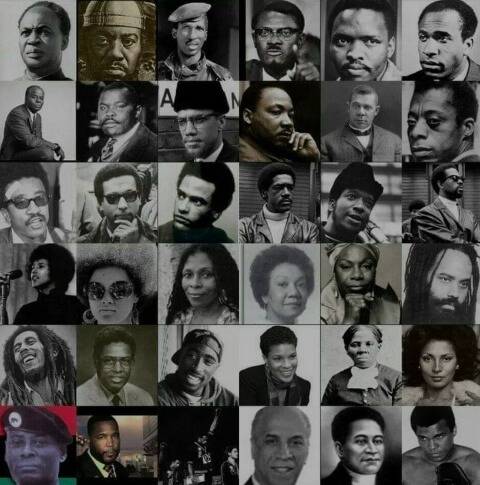Introduction
For centuries, Africa has been a battleground for conflicts, many of which have deep historical roots tied to foreign interference. From colonial rule to modern geopolitics, external forces have consistently played a role in shaping Africa’s internal struggles. Yet, the narrative often shifts the blame to internal ethnic divisions, political instability, and corruption. The undeniable truth is that international powers are the primary instigators and beneficiaries of African conflicts. This article argues that African leaders must take a bold stance, eliminate foreign influence in conflict resolution, and build self-sufficient strategies for peace.
The Historical Role of Foreign Powers in African Conflicts
1. Colonial Legacy and the Roots of Division
Africa's artificial borders, drawn by European colonialists during the Berlin Conference of 1884-85, created deep-seated ethnic and territorial disputes. Countries like Nigeria, Sudan, and the Democratic Republic of the Congo (DRC) continue to struggle with conflicts directly linked to colonial demarcations. Foreign powers designed these divisions to weaken Africa’s unity and make it easier to exploit its vast resources.
2. The Cold War and Proxy Wars in Africa
During the Cold War, Africa became a proxy battleground for the United States and the Soviet Union. Countries like Angola, Ethiopia, and Somalia experienced prolonged wars fueled by foreign weapons, ideologies, and funding. These conflicts were not indigenous but were exacerbated by foreign manipulation, leaving African nations to suffer the consequences of external geopolitical struggles.
3. Modern-Day Western Meddling
In recent decades, Western nations have continued their interference under the guise of humanitarian intervention, democracy promotion, and counterterrorism. The NATO-led intervention in Libya in 2011 is a prime example. Muammar Gaddafi’s government was overthrown, leading to the country’s descent into chaos, terrorism, and migration crises that still affect the continent today.
How Foreign Involvement Fuels Conflicts in Africa
1. Arms Trade and War Economies
Foreign nations and corporations are the major suppliers of weapons used in African conflicts. From Sudan to the Central African Republic, rebel groups and militias receive arms from international arms dealers, fueling violence. These conflicts serve the interests of arms manufacturers while leaving African nations in perpetual instability.
2. Exploitation of Natural Resources
Africa is rich in minerals like gold, diamonds, and oil, which attract foreign exploitation. In countries like the DRC, foreign-backed corporations fund militias to control resource-rich areas. This tactic ensures continuous conflict, making it easier for multinational companies to extract resources at the lowest cost while Africa remains impoverished.
3. Political Manipulation and Regime Change
Western powers have a history of sponsoring coups and regime changes in Africa when leaders refuse to align with their interests. The assassination of Patrice Lumumba in the DRC, orchestrated by Belgium and the CIA, is a stark reminder of foreign powers’ determination to control African leadership. In contemporary politics, economic sanctions and diplomatic pressures serve as tools for coercion.
Why African Leaders Must Take a Bold Stand
1. Strengthening African Union (AU) Conflict Resolution Mechanisms
The AU has the potential to be Africa’s primary conflict resolution body, but it must be empowered and funded by African states rather than relying on foreign donors. A self-sufficient AU will ensure that Africa solves its problems independently.
2. Economic Independence to Reduce Foreign Leverage
Many African nations depend on foreign aid and loans, which come with conditions that compromise their sovereignty. Economic self-reliance through industrialization, regional trade, and self-sustaining agriculture will reduce the need for foreign interventions.
3. Promoting Pan-African Unity and Collaboration
African nations must strengthen diplomatic ties among themselves rather than seeking foreign arbitration. Initiatives like the African Continental Free Trade Area (AfCFTA) should be leveraged to boost intra-African cooperation, making it harder for foreign entities to exploit divisions.
Steps Towards an Africa-Led Conflict Resolution Strategy
1. Developing Indigenous Peacekeeping Forces
African nations must build strong, well-equipped peacekeeping forces independent of foreign funding. This will allow rapid response to conflicts without external influence.
2. Engaging Traditional and Community-Based Conflict Resolution
African cultures have long-standing conflict resolution mechanisms, such as elders’ councils and traditional mediators. Incorporating these methods into national strategies can provide grassroots solutions to disputes.
3. Holding Foreign Powers Accountable
African nations should use international platforms to expose and challenge foreign interference. By uniting their voices at the United Nations and other global forums, African leaders can demand accountability for foreign actions that destabilize the continent.
Conclusion
Foreign powers have long been the invisible hands behind Africa’s conflicts, using economic, political, and military strategies to maintain their interests. It is time for African leaders to be bold, reject foreign interference in conflict resolution, and build a self-reliant continent. By strengthening the African Union, promoting economic independence, and utilizing indigenous conflict resolution strategies, Africa can take charge of its destiny. The future of Africa must be shaped by Africans, for Africans.


